Choose .pt or .com domain
If you just set up your business and want to start building your online presence, this will probably be a question that will pose. In this article we explain the differences and which is the best choice for you. Domain definition A do
If you just set up your business and want to start building your online presence, this will probably be a question that will pose. In this article we explain the differences and which is the best choice for you.
Domain definition
A domain is a name through which you can access a website. All websites are hosted on servers that are identified by a particular IP address. This address can be seen as a server address, which is what differentiates it from the other servers. This address is represented only by numbers. For example the Sapo website has the ip address 213.13.146.142. It is this address that allows you to access the content of the web page. However, this address format is not easy to memorize and it would be quite complicated to access the websites only through these. Thus, domain names were created. These are a more "nice" name for a particular site to be more easily identified. In this way, we can only write in the address bar of the browser "sapo.pt" instead of 213.13.146.142.
Extension of a domain
Associated with each domain there is always an extension that is often associated with a particular country. For example, "pt" (Portugal), "es" (Spain), "co.uk" (United Kingdom) and "de" (Germany). There are also more generic extensions, for example the "com" or "net" which, being extensions very used in web pages, do not have any specific associated country. Choosing the extension to use in your business can influence your image and how the website is processed by the search engines.
Choose the most appropriate extension
In order to make a better choice about the extension to use for your domain, you should first think about who your website's target audience will be. If you plan to sell a product or service exclusively for the portuguese market, it may make sense to register a ".pt" domain. In this way you will be transmitting the image that your business is Portuguese and is intended for Portuguese people. Also the search engines will pay attention to this when ordering search results.
On the other hand, if you want to appeal to a public of another specific country you should consider using the respective domain. For example, if you want to sell your products with special emphasis on the Spanish market, you can choose to register a ".es" domain. Alternatively, if you do not wish to focus on a specific country, but on the international market, you may opt to use a ".com" domain.
Conclusion
Most of the time the choice of domain extension to usehave geographic reasons. If your business is mainly aimed at the national market, the most appropriate will be to use a ".pt" terminated domain. On the other hand, if you want to give your business an international look, leaving the expansion outside Portugal open, you can opt for a more generic extension, as with ".com".
In addition to the image you transmit to a user, the way your website appears in search engines can be influenced by the termination of your domain. For example, for a search in Portugal, ".pt" domains will be privileged by search engines. By contrast, in a search conducted in Spain, ".pt" domains will tend to have less priority than ".es" domain names.
